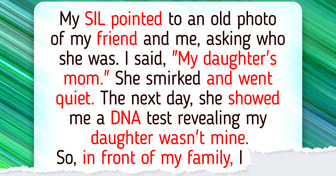I used to think I could never earn more than what my previous employer paid me — but I was wrong. The world is full of opportunities for those willing to take a chance.
Now, I’m earning $52 per hour or more, and I can easily make at least $1,300 a week. Based on my experience, I believe everyone should try working online — it’s a simple and flexible way to earn money. Here's an example..>>>>>>>>>>>>>>>>
Www.Richnow1
10 Phrases That Might Be Quietly Pushing People Away Without You Realizing

We’ve all said things that seemed harmless, only to feel the energy shift. Some phrases sound confident or even healthy, but they hide subtle red flags that can quietly damage relationships. These everyday words may look positive on the surface yet carry toxic undertones that leave people feeling unseen. Here are the surprising phrases that could be harming your emotional connections without you realizing it.
1. “I was just joking...”

This phrase often slips out after a cutting remark or passive dig. While it may seem like a way to soften the blow, it actually undermines trust by disguising hostility as humor. People start to feel unsafe around you because they can’t tell whether you’re being sincere or sarcastic, so they keep their distance.
➡️ Humor that hides truth leaves people doubting your words.
2. “I’m focusing on myself right now.”
It seems like healthy self-care, but it can also communicate self-absorption. People hear that there’s no space for them in your world, even in small ways. While it’s important to prioritize yourself, the phrasing often feels like a polite wall shutting others out.
➡️ Self-focus becomes harmful when it cancels out connection.
3. “That’s just how I am.”
This phrase sounds like self-acceptance, but it actually signals resistance to growth. It tells others that you’re unwilling to compromise, evolve, or consider how your behavior affects them.
Over time, people may feel they’re walking into a fixed wall of personality instead of connecting with a human who can bend, adjust, and care.
➡️ Authenticity becomes toxic when it doubles as an excuse to never change.
4. “I don’t do drama.”
On the surface, this phrase suggests maturity. But underneath, it can mean you dismiss genuine human conflict or emotion as “drama.” People with real concerns may fear you’ll label them as messy, so they stop sharing. What sounds like wisdom can come across as emotional avoidance.
➡️ Avoiding “drama” often means avoiding people’s realities.
5. “I don’t chase, I attract.”
This popular self-assurance phrase seems empowering, but it implies passivity in relationships. Others may feel you won’t put in effort to meet them halfway. Connection thrives on reciprocity, and if you always wait to “attract,” people may feel their energy is unvalued.
➡️ Relationships wither without pursuit from both sides.
6. “I don’t hold grudges.”
This sounds virtuous, but sometimes it masks dismissal of real hurt. People may feel that you gloss over conflict rather than work through it. By claiming you “don’t hold grudges,” you can skip the accountability part, leaving others feeling unheard.
➡️ Forgiveness without conversation isn’t forgiveness—it’s erasure.
7. “I’m fine.” (when you’re not)
On the surface, this seems polite and non-dramatic, but it confuses others. If people sense something is off, your words contradict your energy. This creates tension because they don’t know whether to press or withdraw. Eventually, people stop asking, not because they don’t care, but because they’ve learned you won’t let them in.
➡️ Saying “I’m fine” too often teaches people to stop checking.
8. “I’m very selective with my circle.”
This is often framed as high standards, but it can make others feel perpetually tested, as if they’re on probation. Instead of intimacy, it creates insecurity—people worry they’ll never quite measure up. What sounds like discernment can easily read as elitism.
➡️ Exclusivity can look like superiority, not strength.
9. “You always...” or “You never...”
Blanket statements feel like courtroom verdicts. They don’t describe behavior—they define identity. Instead of addressing an action, they box a person into a fixed role.
Over time, people resist not just the criticism but the relationship itself, because nobody wants to live under absolute labels.
➡️ Absolutes don’t describe people—they trap them.
10. “Let’s agree to disagree.”
On the surface, this sounds peaceful, but in practice, it often halts real dialogue. It can feel like you’re shutting the door on understanding. People don’t always want agreement—they want to feel heard. This phrase can signal you’re done engaging, which can leave the other person stranded mid-thought.
➡️ Agreeing to disagree can sound wise, but it often silences growth.
Navigating relationships and handling social tension in a healthy way is never easy. Recently, Amanda found herself in a tough spot when she reported a colleague to HR after repeated comments about her having four kids. The situation quickly escalated, and feeling lost, Amanda decided to share her story with us in this heartfelt letter.
Comments
Related Reads
15+ Moments When Life Served Up Surprises Big Enough for a Movie
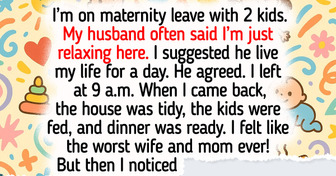
13 People Who Found Out Firsthand That Family Vacations Are No Joke
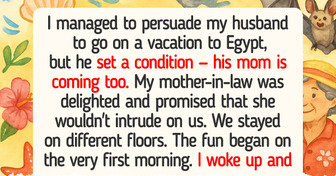
I Refuse to Beg for Time With My Grandson
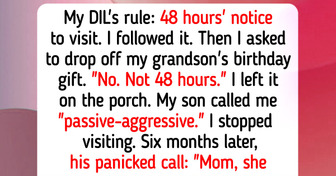
I Refused to Listen to My Boss’s Personal Problems, and He Tried to Make Me Pay
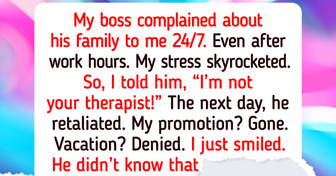
I Let My Kids Play Outside Alone and Child Services Showed Up at My Door
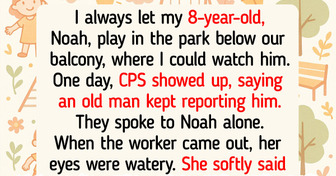
I Refuse to Be a Free Babysitter for My Stepchildren — My Comfort Comes Before Anyone
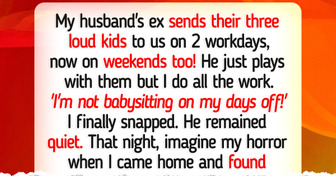
I Begged My Family to Help With My Medical Bills—Their Response Left Me Stunned
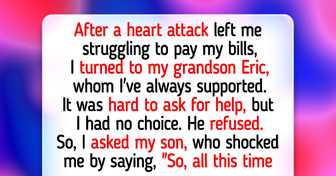
10 Stories That Prove Kindness Is the Most Powerful Force
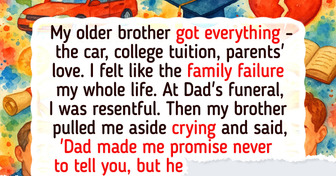
I Refuse to Let My Ex’s Widow Play Mom to My Daughter
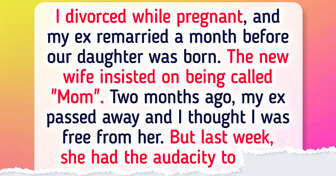
I Refused to Take My Husband’s Last Name—I’m Not His Belonging
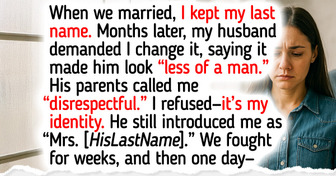
12 Life Twists That Feel Like a Rollercoaster With No Seatbelt
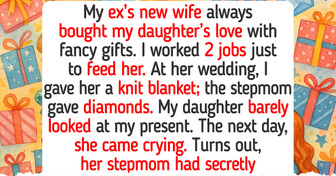
My SIL Secretly Tested My Toddler’s DNA, She Didn’t See My Response Coming
